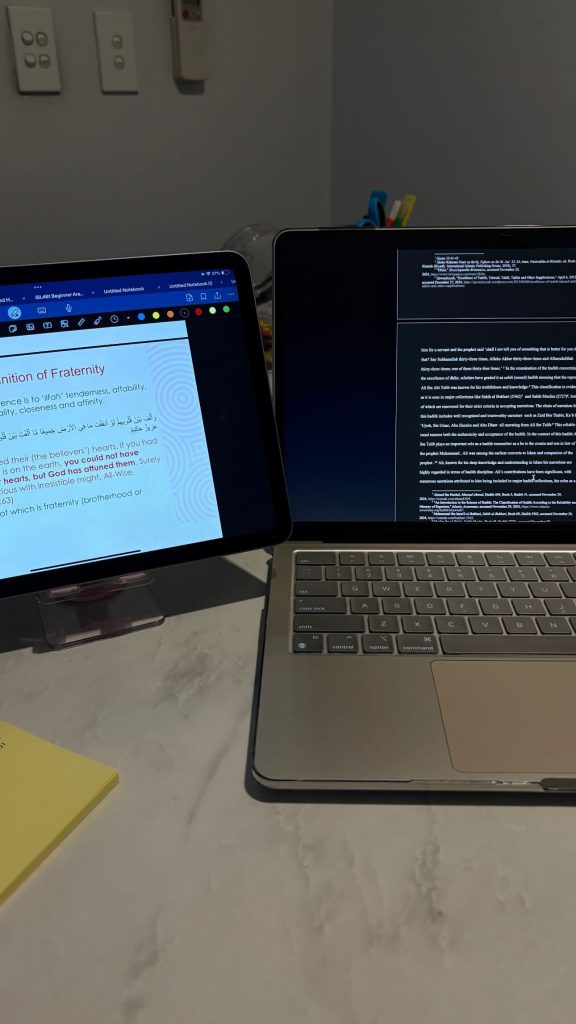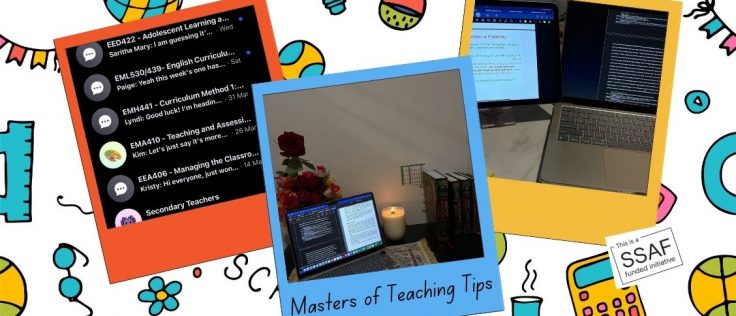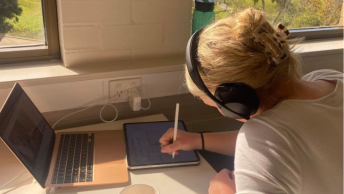Written by Shantel Hussain
Beginning a Master of Teaching is an exciting step towards becoming an educator especially for someone like me who has wanted to be in the teaching industry since I was young.
When I first started I was a bit nervous but I have overcome that and I’m here to give you all some tips in case you’re feeling overwhelmed or if you’re not sure what to expect.
Between coursework, placements, and balancing personal commitments, preparation is key to setting yourself up for success. Here are some tips I’ve used and am going to share them with you!
Get Familiar with Your Course Structure

Before the session begins, make sure to take some time to explore your course outlines, assessment deadlines, and required readings. Getting a notebook and noting down important dates will help you in the long run and keep you prepared.
Charles Sturt provides this in the online student portal. When you’re successfully enrolled in the subject, you can find your course outline and weekly topics which will give you an idea of what’s coming up and will help you plan your workload and avoid last-minute stress!
Organise Your Study Space and Materials
A well-organised study space can make a big difference in staying focused.
Set up a quiet and comfortable area with all your essentials such as your laptop, notebooks, stationery, and any required textbooks. Don’t make your desk too crowded with unnecessary things – in my experience it’ll make you lose focus.
You may also want to invest in a planner or a digital calendar to keep track of lectures, assignments, and placement schedules. I personally like to use good notes.
Connect with Your Peers and Lecturers
Building a network early on will make your experience more enjoyable and productive. Join any student groups, discussion forums, or social media pages related to your course.
Joining a Facebook page run by students is really good for engaging with classmates and can help you share resources, ask questions, and form study groups. You could even start your own with some of your peers.

In my Bachelor degree I created a WhatsApp group where we all helped each other out! If you’re unsure about anything, don’t hesitate to reach out to lecturers or tutors—they’re there to help.
Start Reading and Researching Early
Education is a research-heavy field, so getting comfortable with academic reading is essential. I’ve learnt trying to skim through key texts before your first classes and taking brief notes on important concepts is very helpful.
Understanding teaching theories, curriculum standards, and classroom management strategies early on will give you a solid foundation and keep you prepared.
Prepare for Professional Placements
One of the biggest parts of a Master of Teaching is the practical teaching experience.
While you might not start placements immediately, it’s good to review teaching frameworks, understand professional conduct, and start thinking about how you’ll manage a classroom.
If you haven’t already, ensure you have the necessary clearances, such as a Working with Children Check (WWCC). Students who are already set to study will be emailed with a full list of what to have prepared before beginning placements!
Develop Time Management Skills

Balancing coursework, placements, and personal life can be challenging. Create a weekly schedule that includes study time, assignments, and self-care.
Breaking these tasks into manageable chunks and setting realistic goals can help prevent burnout and stress which no one needs especially while at uni.
Finally, starting your Master of Teaching is an exciting and rewarding journey, and being well-prepared will set you up for a smooth first session so please stay organised, build connections, and embrace the learning experience.
Before you know it, you’ll be stepping into a classroom, making a difference in students’ lives!
Charlie blog is a SSAF funded initiative.










